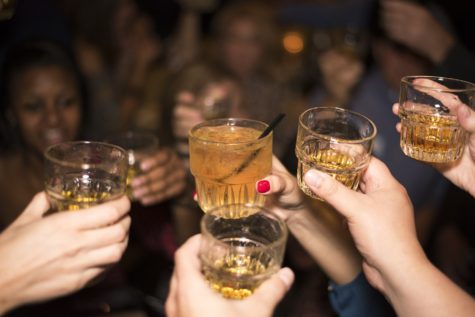COLOMBIA, Mo. — Do you think you act like a completely different person when you’ve had a bit too much to drink? There’s a good chance that your friends perceive you to be all the same, drunk or sober, a new study finds.
Researchers at the University of Missouri, Columbia recruited 156 adult participants, all of whom were initially instructed to complete a survey in which they disclosed both their alcohol consumption habits and their self-perceptions of their “sober” and “drunk” personas.

After completing the survey, the participants entered a scientific lab with friends in groups of three or four. The height, weight, and blood alcohol content (BAC) of participants when entering the study were recorded.
In the lab, some participants drank Sprite, while others drank a cocktail that was tailored to result in the participant having a BAC of .09.
Participants were given 15 minutes for the alcohol to take effect, at which point they participated in group activities that were meant to test for the prevalence of certain behaviors and personality traits.
To measure subjective changes in personality, the participants took personality measures twice during the experiment.
Meanwhile, a more objective measure was obtained by videotaping the same participants, whether sober or inebriated.
While those who drank the cocktail self-reported having felt changes in all five major dimensions of personality — extraversion, conscientiousness, openness to experience, agreeableness, and neuroticism — observers only saw a notable change in the inebriated individual’s level of extroversion, which had increased.
It’s easy to place the blame for this discrepancy on either the participants or the evaluators, but the researchers argue that it’s not that simple.
“We believe both the participants and raters were both accurate and inaccurate — the raters reliably reported what was visible to them and the participants experienced internal changes that were real to them but imperceptible to observers,” explains lead researcher Rachel Winograd in a university press release.
“We also would love to see these findings replicated outside of the lab — in bars, at parties, and in homes where people actually do their drinking,” adds Winograd.
Ultimately, the researchers hope that this study can help shine light on how to properly structure intervention programs.
The study’s findings were published in the journal Clinical Psychological Science.
